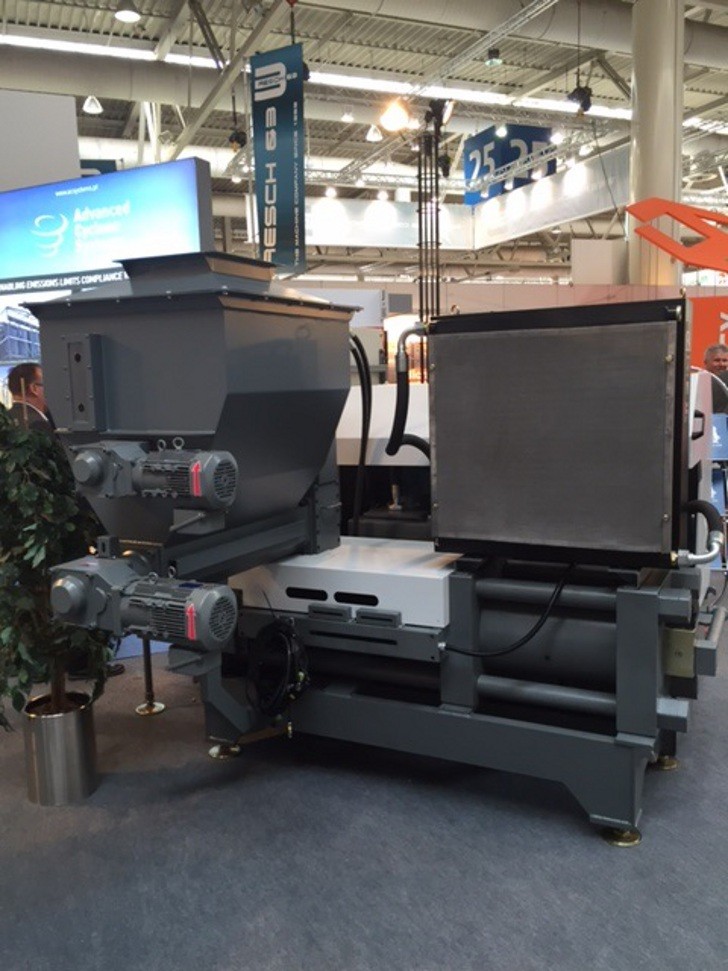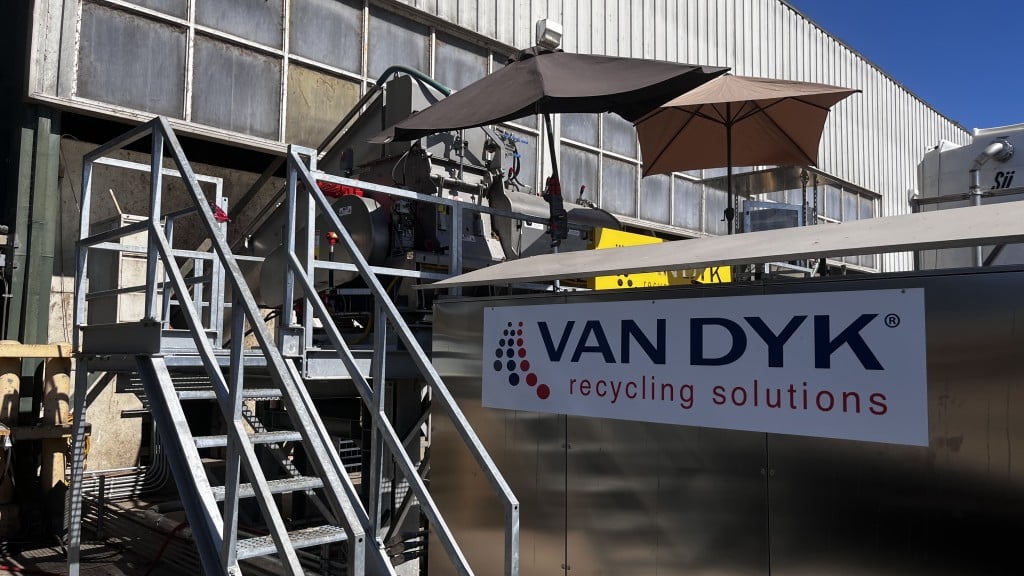Latest mechanical, hydraulic and screw extrusion presses for briquetting applications available from Briquetting Systems

Briquetting Systems is a multi-line distributor based out of Vancouver, B.C. Recently, the company announced the availability of two new mechanical presses from manufacturer C.F. Nielsen AS, a leading manufacturer of mechanical briquetting presses based out of Denmark. From raw material - including agricultural waste, wood, paper, plant dust and other biomass residues and wastes - C.F. Nielsen's full-line of briquetting solutions produce briquettes for use in large boilers and power plants as well as log-type briquettes for use in fireplaces and wood-burning stoves by consumers.
The latest C.F. Nielsen offerings, the Quattro hydraulic press and the Shimada screw extrusion press, were introduced in May at Ligna 2017 (the world's leading trade fair for machinery, plant and tools for the woodworking and the timber processing industry).
The Quattro hydraulic press produces a brick-shape product approximately 60 x 150 mm (cross-section) and 100 to 200 mm long. Output using the Quattro hydraulic press is 1,000 to 1,200 pounds per hour and it can briquette various dry wood particulate, including wood dust. Units are ideal for wood working and furniture plants, feature a small footprint and can be connected to existing dust collectors. The BPH Quattro Hydraulic Briquetting Press is equipped with a main motor of 45 kW Rectangular briquettes produced are uniform in size and easy to store, and units can produce briquettes from mixed wood materials, including manufacturing plant dust, which can then be used in consumer wood stoves and fireplaces.
"The Quattro features higher operating pressures, larger cylinders, heavier build and larger cooling systems compared to similar machinery and is designed to run 24/7," says Briquetting Systems owner Wayne Winkler. "These machines also feature touch-screen controls and use high quality hydraulic components that are easily serviceable." CF Nielsen briquetters are available to suite local 3-phase electrical supply and CSA/UL standards.
The Shimada extrusion screw press is rated at approximately 1,000 pounds per hour, produces a very high density briquette from dry fine feedstocks, and is designed to work with a carbonizer that produces charcoal. Shimada Extrusion Screw Presses are equipped with a main motor of 45 kW, producing briquettes measuring 55 mm x 55 mm or 65 mm x 65 mm.
"The BP Shimada Extrusion Briquetting Press produces uniform, square briquettes which are easy to store, and are typically used as logs for fireplaces and wood-burning stoves," says Winkler. "The specialized BP Shimada Briquetting Press is also capable of producing very dense briquettes, which can be carbonized to high quality charcoal briquettes for cooking and BBQ."
"Both the BPH Quattro Hydraulic and the BP Shimada Extrusion Press come as compact units with press, buffer silo, dosing system and PLC-operated control panel with internet access," says Winkler.
"In addition to these two new machines, Briquetting Systems supplies mechanical briquetters in sizes from 400 to 6,000 pounds per hour output," he adds. "Here in Canada and the USA, we are involved in projects to make various types of consumer fire logs, agricultural materials processing for fuels and enhanced absorbent animal bedding, dust briquetting for in-plant fuels as well as natural wood fire logs for wood fired pizza ovens, and converting plant wood residuals to briquette or puck format for use in CHP (combined heat and power) plants." Winkler says that these machines can remove a producer's waste disposal bills which can be significant, and especially in cases where there are carbon taxes, companies can gain credits by replacing a percentage of their fossil fuels used for energy.
C.F Nielsen Mechanical presses are available in a large range of configurations, for both small and large-scale installations, and two or more presses can be combined for high tonnage per hour. Additional features and benefits of C.F. Nielsen mechanical presses include: a modern design with streamlined covers; maintenance-friendly design; high efficiency motors; a die system with exchangeable wear parts, which can be adapted to customers' raw material and density requirements; and a double infeed system is available on large machines for higher capacity and uniform density. RPN


